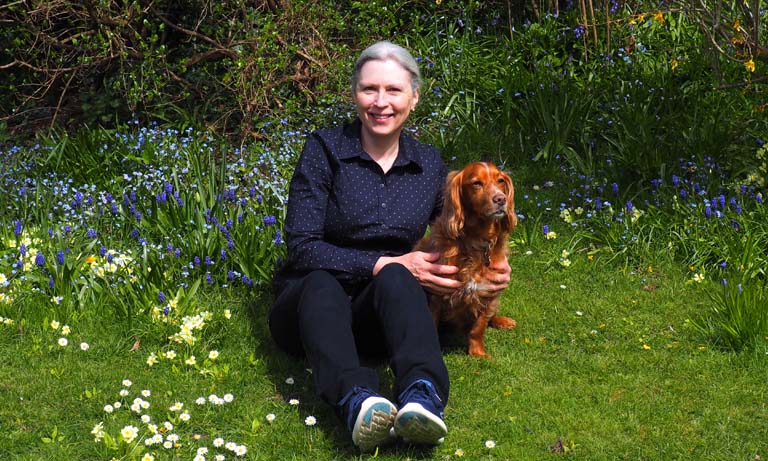The veterinary voice for animal welfare: reflecting on BVA’s updated Animal Welfare Strategy
11 Jul 2025
BVA Junior Vice President Anna Judson encourages pet owners to return unused or out-of-date antibiotics to a vet practice for safe disposal this month.

Antibiotics treat infections caused by bacteria- microscopic bugs that exist on or in living beings and are found extensively in the environment. Widespread use has resulted in bacteria developing resistance to some or all classes of antibiotics with worrying impacts on human, animal and environmental health. It is a true ‘One Health’ problem that needs action from us all.
If we don’t act decisively and collectively to reduce antibiotic use and misuse, antibiotics will not work when needed and lives will be lost to bacterial diseases in a manner the world has not witnessed for decades.
That’s why vets and other healthcare professionals have been working together for many years now to raise awareness about using these medicines responsibly for the sake of human health as well as the health of our pets and animals on farm. You may already be aware of the three Rs of responsible antibiotic use- Reduce, Replace and Refine. This year, we have joined forces with a range of veterinary organisations and NHS Midlands to adding a fourth ‘R’ to this responsible antibiotic use lifecycle- ‘Return’.
It may go without saying, but the first step is to reduce the need for antibiotics. A healthy pet is less likely to need medical treatment.
Ensuring your pet’s good health comes from giving full thought to their life-long welfare needs and taking them for regular vet checks.
If you are choosing a pet, be honest about the time and energy you have to care for them and the costs of providing for their five welfare needs; their diet, environment, behaviour, companionship and health. In particular, speak to your vet team about the health problems and needs of different species and breeds to ensure you choose the right pet for you and your circumstances.
Ensure your animal gets regular health checks, as it will help catch illness or disease promptly. Early diagnoses limits suffering as most conditions are easier to treat and control in the early stages with fewer medicines and lower costs. The same is true if your pet is injured, because with prompt veterinary advice many injuries can be managed without antibiotic use. Follow your vet’s guidance on how to keep surgical or other wounds clean and free from being chewed or licked by your pet which can cause further injury, allow infections to enter and delay healing
Antibiotics have been so successful at managing diseases in pets and humans that there is a tendency for everyone to expect them to be prescribed for any condition. However, many illnesses are not the result of bacterial infections and antibiotics won’t work in these cases. For example, the underlying cause of parvovirus in dogs and flu in cats are viral infections which do not respond to antibiotics. If they set in and cause tissue damage, secondary infections can result which need antibiotics. Preventing viral disease through vaccination is key for animal welfare and to avoid the need for antibiotics.
Be open to alternatives to antibiotics suggested by your vet to manage your pet’s health conditions. Skin and ear infections can respond well to washes or cleaners, for example, with flare ups reduced by managing underlying problems such as allergies or parasites.
Antibiotic use is complex. Vets need to know where the infection is localised, which bacteria are present and which antibiotics will work against them. Blood or urine tests and swabs for ‘culture and sensitivity’ may be suggested as important information gathering tools. A bug may be sensitive to a particular antibiotic but it won’t work if it cannot get to where the infection is based. Some antibiotics are toxic if taken by mouth but are safe to use on the skin. Work with your vet to ensure your pet gets ‘the right drug for the right bug’.
Now for the fourth ‘R’ in the antibiotic use lifecycle- returning unused or out-of-date antibiotics that had been prescribed for your pet. Sharing ‘spare’ medicines is unsafe and adds to antibiotic resistance. It’s a health risk both to the recipient as the medicine may be dangerous or ineffective for them and to the provider who will not have taken the course as prescribed. BVA strongly advises against doing this and recommends speaking with a vet before interrupting or stopping an animal’s prescribed course of antibiotics.
Taking redundant antibiotics out of circulation and ensuring their safe disposal is an important step in reducing antibiotic misuse and environmental contamination. In 2021 NHS Midlands ran a successful ‘Antibiotic Amnesty’, where people were encouraged to return unused antibiotics to their local pharmacies for disposal. This year BVA, along with 14 other veterinary organisations, has joined up with NHS Midlands to roll out a first-of-its-kind veterinary antibiotic amnesty campaign.
We are encouraging all pet owners to get behind the campaign- return any unused antibiotics left over from your pet’s treatment to your vet for safe disposal at any time this month. We’re also asking you to fill a short survey to help vets learn more about the reasons behind leftover medications and how they are currently disposed.
By working together to follow the four Rs of responsible antibiotic use, we can all play an important role in ensuring they are around for the future for animals and humans.
Get tailored news in your inbox and online, plus access to our journals, resources and support services, join the BVA.
Join Us Today